Princess of Tasmania
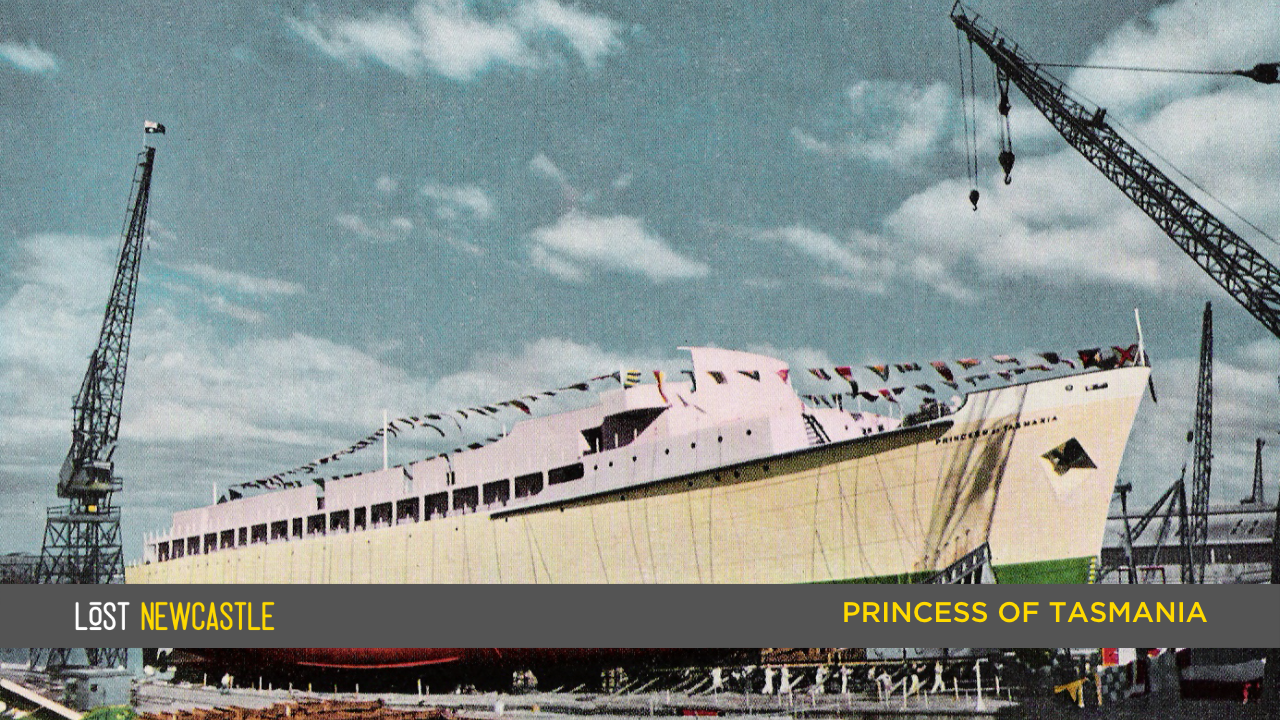
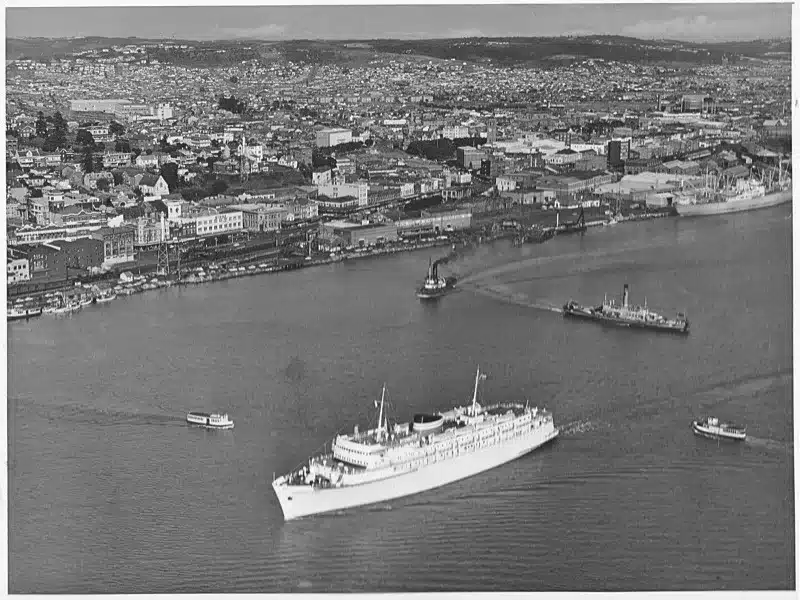
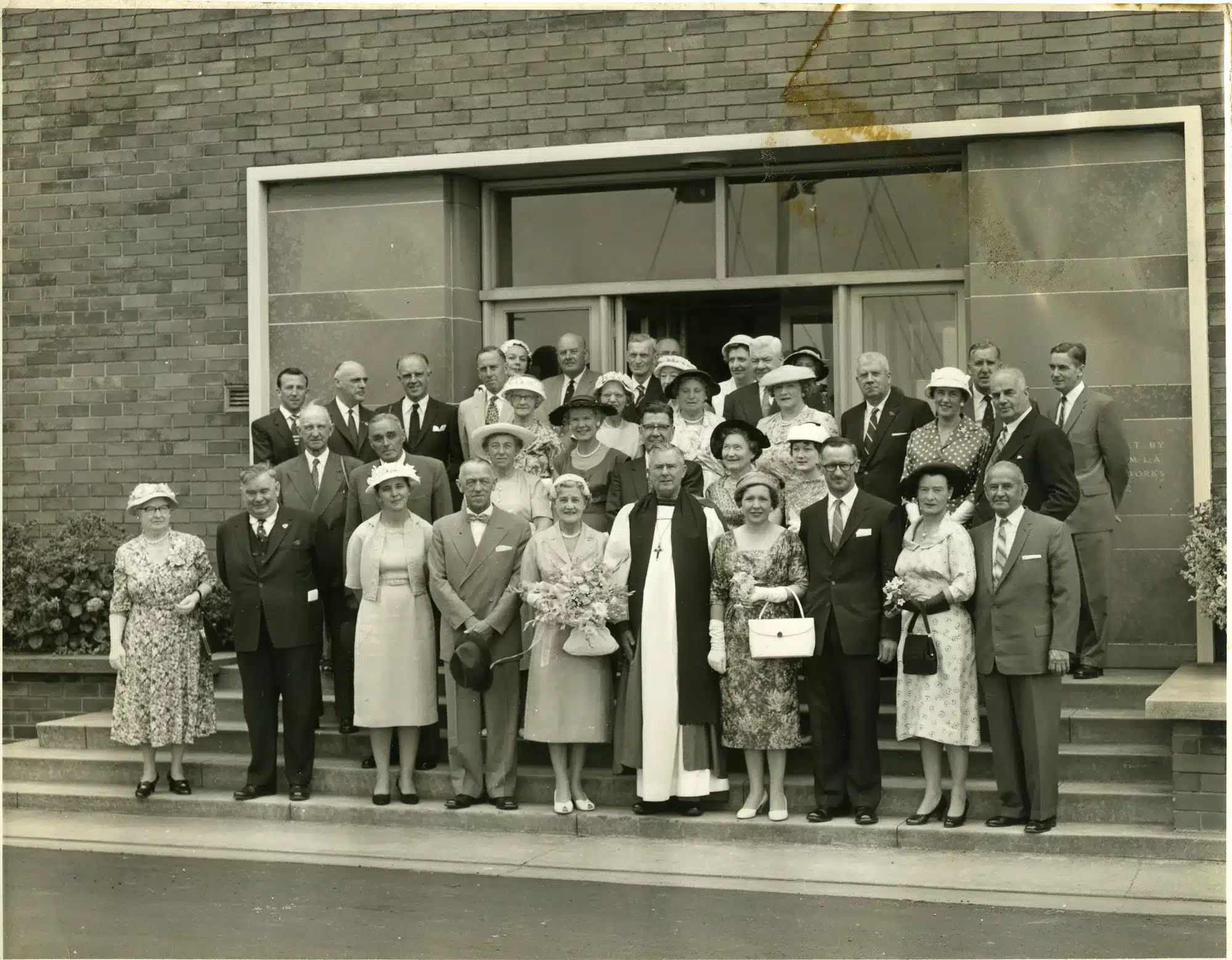
The Princess of Tasmania was a lifeline for people living on the island state and mainland Australia.
A roll on/roll off passenger ship, the Princess of Tasmania was building by the NSW State Dockyard in Newcastle for the Australian National Line.
Passenger capacity was 334, 178 beds in 73 cabins. 26 Single berth, 27 two berth, 18 four berth, 2 suites and 156 recliners in two lounges located one on each side of the funnel. The bigger saloon was at the front of the ship behind the full-width deck. They were decorated in Laminex on the bulkheads and wall-to-wall carpet. A cafeteria on the upper deck seated 82 in swivel-type stools at thee U-shaped rubber-topped tables. The Princess of Tasmania carried a crew of 67 including the master, three mates, chief engineer and ten engineers. The ship was the first of its type in the southern hemisphere and at the time of launching in 1958, she was the largest vessel built in Australia.
The Princess of Tasmania’s maiden voyage was on 23 September 1959 from Melbourne to Devonport with a selection of VIPs on board. Then Premier of Tasmania, Eric Reece, officially opened a new terminal that had been constructed for the Princess – the Sir Robert Cosgrove terminal.
An Island Welcome for a Princess
Australian Women’s Weekly – 28 October 1959
By BARBARA WALLIS, staff reporter
When the Princess of Tasmania steamed across Bass Strait on her maiden voyage recently, Tasmanians celebrated what they believe is the beginning of a new era of prosperity for the island. FOR Tasmania’s greatest drawback has always been the stretch of sea which separates it from the mainland.
And now the brand-new, £2,000,000 Princess has converted the Bass Strait crossing into a “sea-road,” as simple to drive on and off as it is to drive in and out of a drive-in theatre. In fact, so easy has the luxury ‘”ferry” made the trip for motorists that thousands of tourists who otherwise would never have left the mainland are expected now to head for “The Apple Isle.”
The first voyage of the Princess from Melbourne to Devonport was triumphant all the way. It was a special trip for 116 guests, including Dame Pattie Menzies, who named the ship in Newcastle, Mr. Reece, Premier of Tasmania, and his wife, and several politicians.
The Princess sailed across the Strait, escorted by R.A.N. frigate H.M.A.S. Quiberon. She was already a proud heroine after her inaugural voyage from Newcastle, when she steamed ahead at 16½ knots while other ships were forced to hove-to in the teeth of a gale.
Photographer Laurie Kimber and I boarded the Princess at the new ferry terminal, Port Melbourne, driving up the ramp at the stern of the ship into the car deck—a vast cavern ”down below.” Leaving the car to be safely lashed and chocked, we climbed the stairs to the passenger decks, with no more worries about it till we drove it off at Devonport.
The bow propellers churned up the water as the ship moved sideways from the wharf—independent of a tug. Because she is fitted with these bow propellers, the Princess has been granted a special licence to pass without a tug through the Rip at Port Phillip Heads.
Automatic stabilisers make her a stalwart lady in rough seas—a boon to bad sailors who dreaded the rough Bass Strait crossing and a consolation to anxious vehicle owners. Outside the Port Phillip Heads, H.M.A.S. Quiberon waited to escort the Princess to Burnie, where she circled in a wide arc to give the town—which had farewelled the old Taroona two days before—a chance to see her new replacement. Then she sailed to Devonport without naval escort and received a right royal welcome.
BREAKFAST on the Melbourne-Tasmania crossing is served in this attractive dining saloon, which seats 800 people. The steward behind the counter is Len Pusey, who was on the Taroona’s first trip in 1925. none
GLAMOR “FERRY,” the Princess of Tasmania, built in Newcastle, has now begun her role of transporting cars and people across Bass Strait.
This picture was taken at her Port Melbourne berth. The whole of Devonport’s 12,000 population turned out. Shops closed for two hours. Children, released from school, lined the banks at the mouth of the Mersey River, cheering “We love the Princess” at the top of their lungs. As a commemoration of the first voyage, Dame Pattie Menzies presented Captain W. B. Williams, master of the vessel, with an 1835 map of Van Diemen’s Land.
On her first commercial voyage on October 2 the Princess had 334 passengers—178 accommodated in single, two, and four-berth cabins and 156 in three comfortable lounges with aircraft-type reclining lounge chairs.
The cost of the 460-mile round trip for the owner of a Holden-sized car is £24 — about a shilling a mile. The one-way passenger fare is £3/17/- for lounge-chair accommodation; £6/2/- for a berth in a double cabin.
If you have no car and want a cheap holiday, it costs £3/17/- (each way) to sit in a lounge, with an additional £1/15/9 for motor-bike or scooter, and 16/6 for a push bike. Supper and breakfast are provided on board in the gay dining-room with its two oval bars and Calypso-patterned stools set against hyacinth-blue walls.
The Princess carries 100 cars, including cargo-carrying transports and a brand-new drive-on, drive-off Royal Mail van. There are 60 crew members on board, including one lone stewardess, Joan Elliott, who has been employed in vessels on the Tasmanian run for 20 years. She was one of the 14 members of the crew who transferred from the Taroona.
LOUNGE PASSENGERS in the Princess recline comfortably in aircraft type lounge-chairs. By paying a little extra they are able to book comfortable one, two, or four-berth cabin accommodation for the crossing.
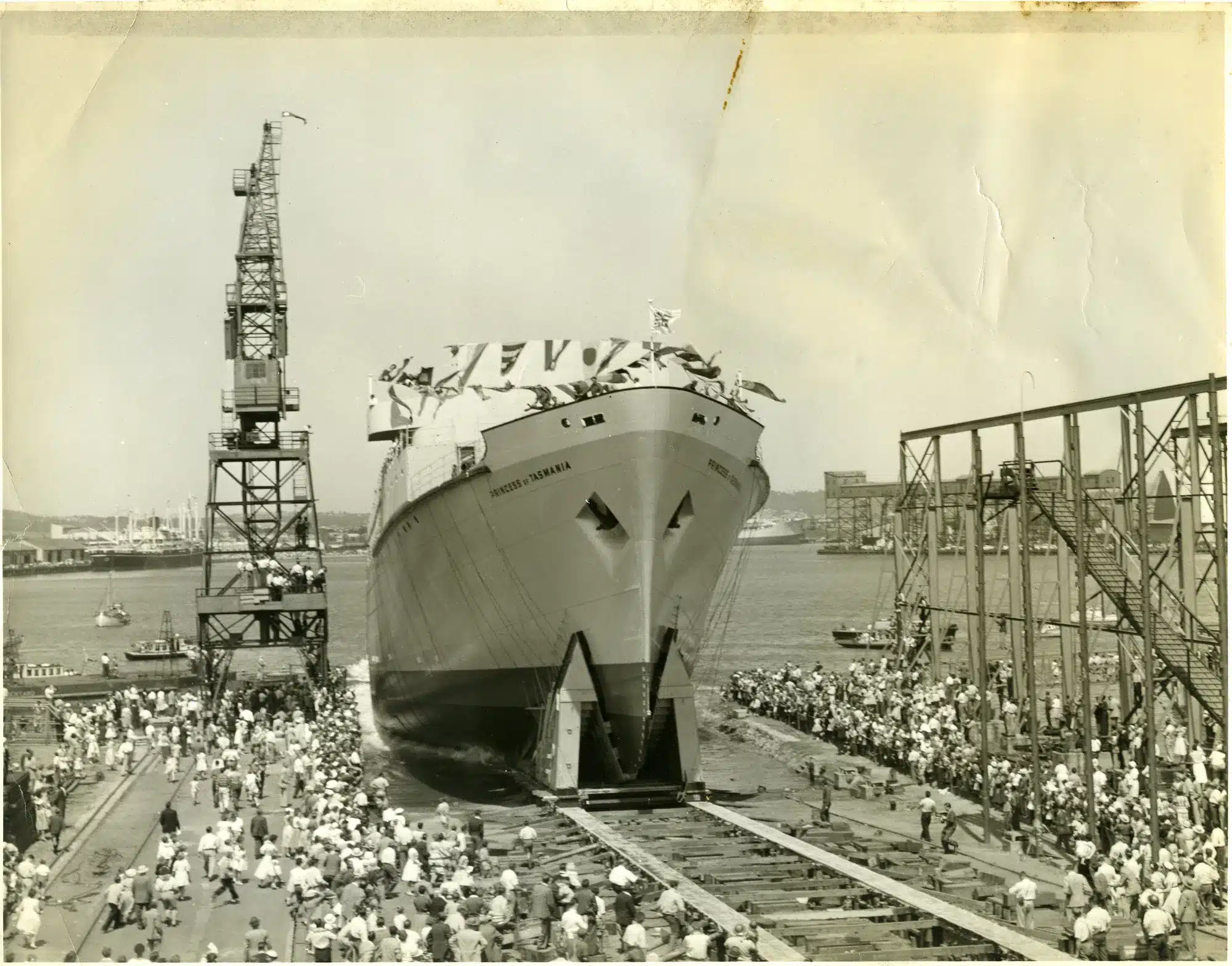
Prior to the Princess, small Tasmanian Steamers had operated between Melbourne and Tasmania with their vessels capable of only holding a few cars that were lifted aboard with a crane. The roll on/roll off capability of the Princess was popular in Europe but Tasmanian Steamers had been unable to find funding to build one and in 1957 withdrew from the Tasmanian ferry business.
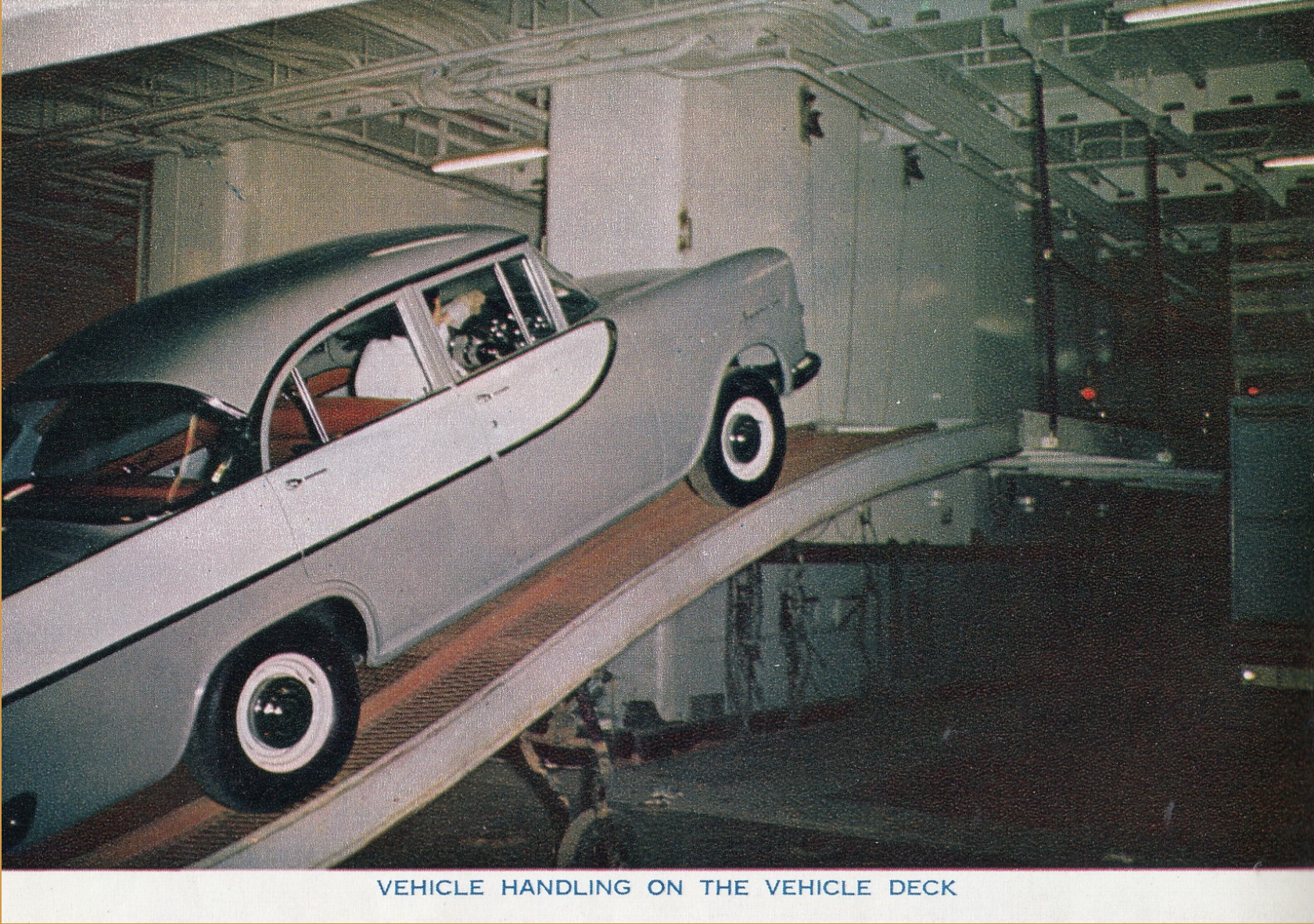
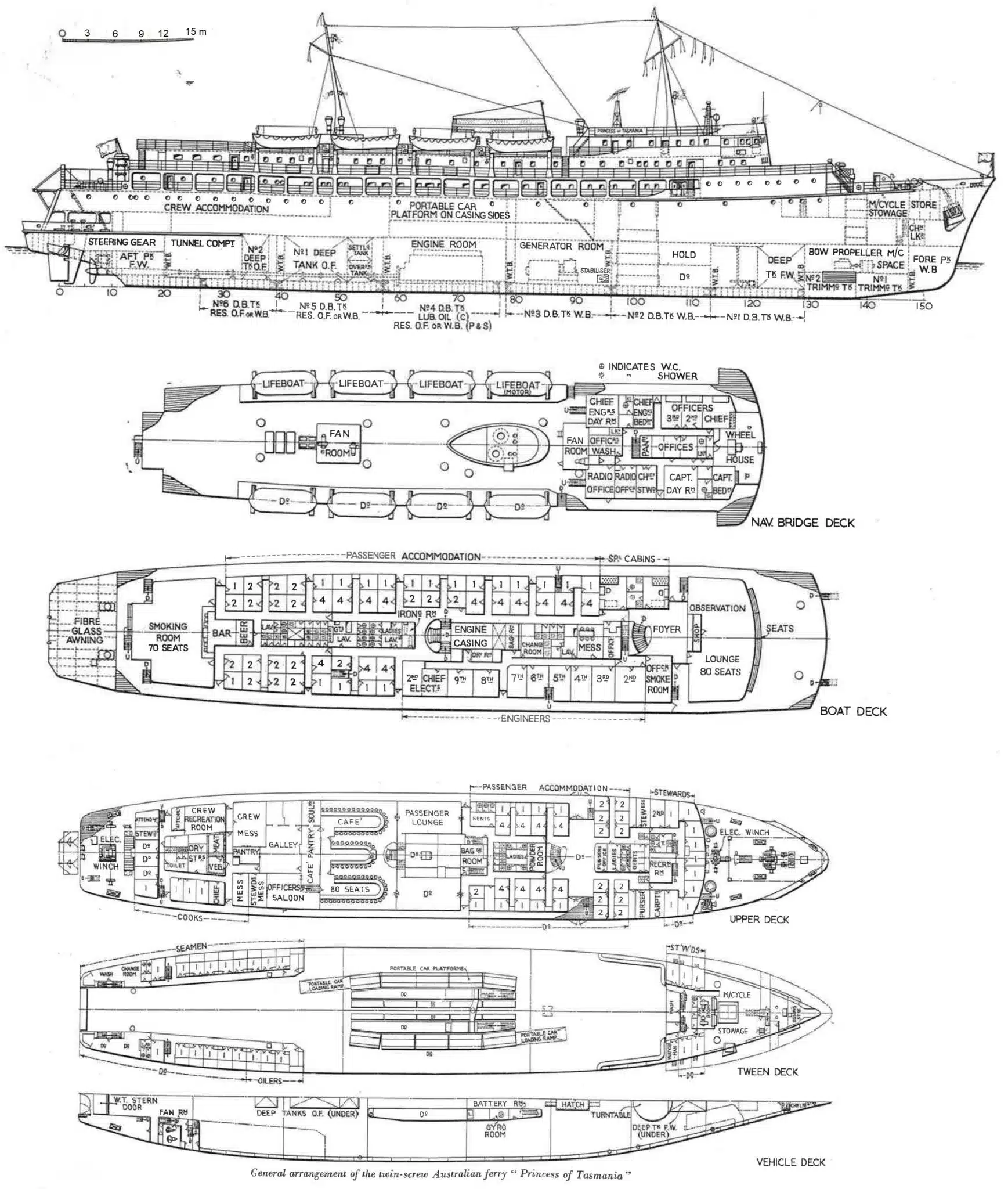
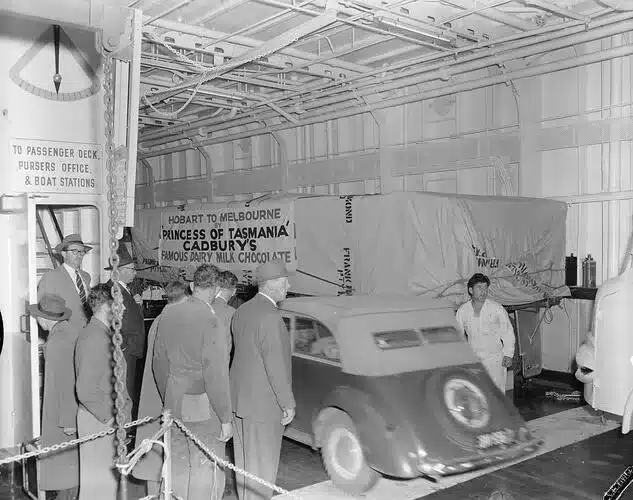
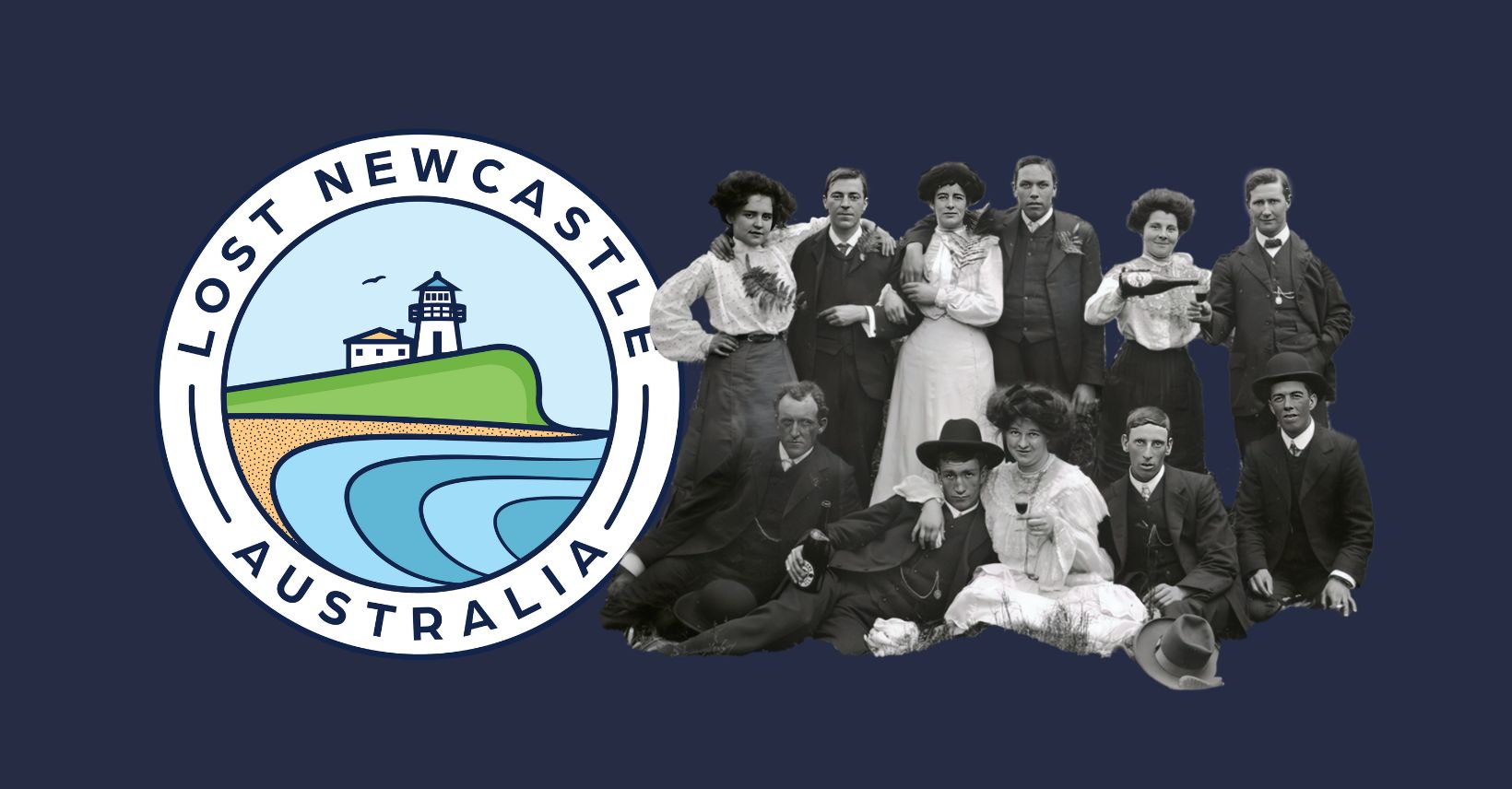
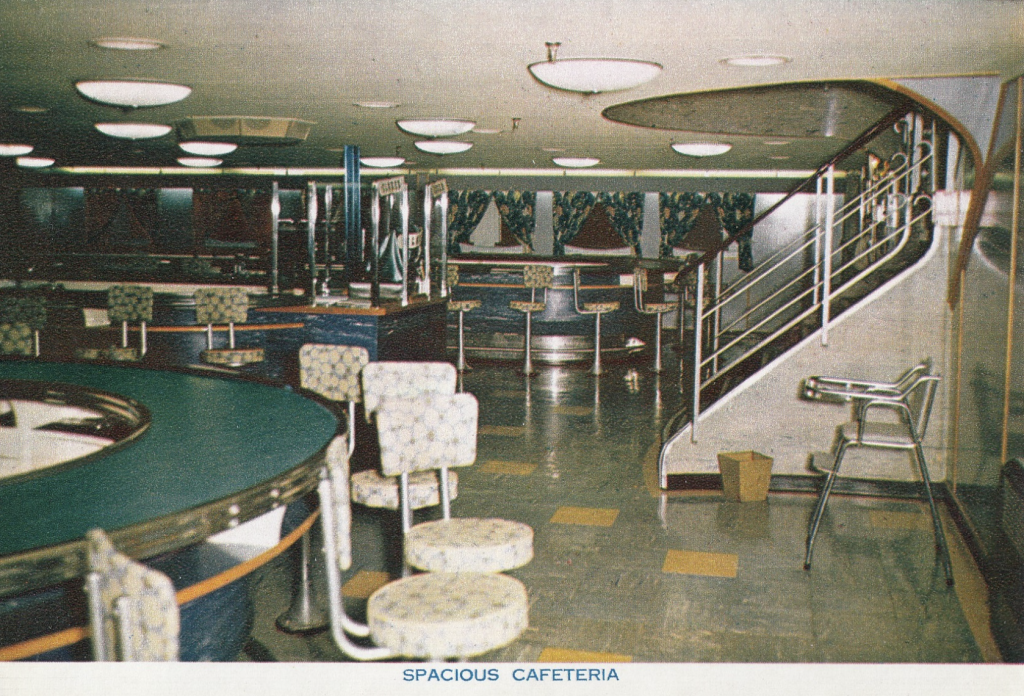
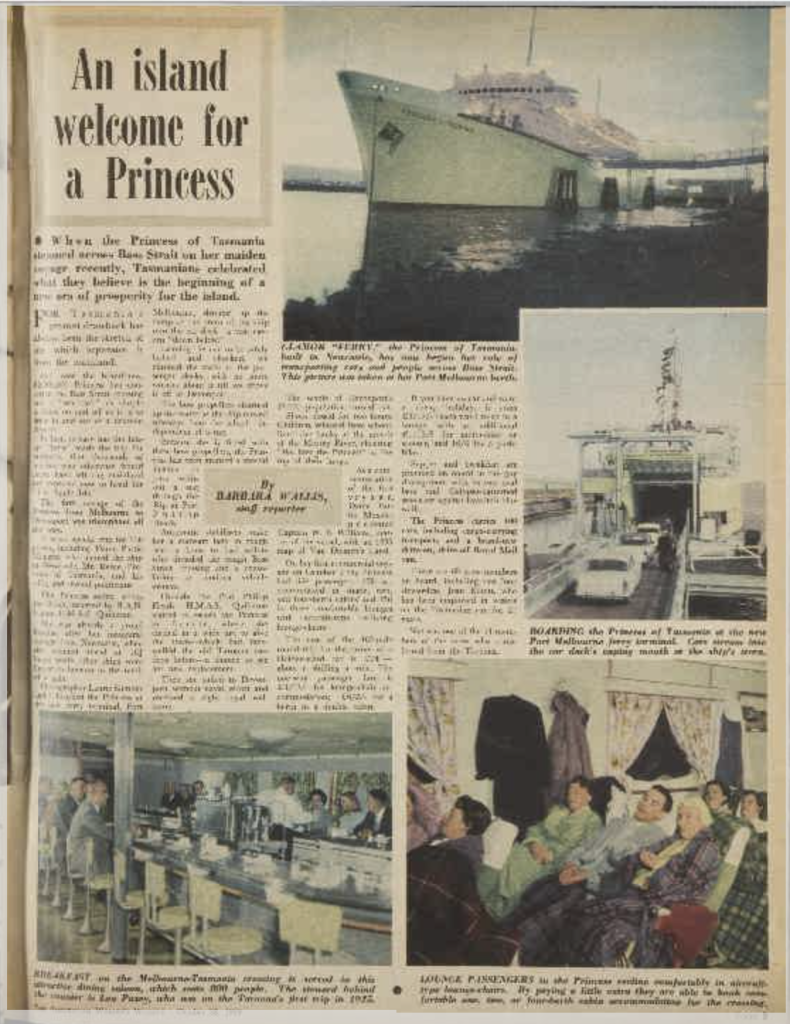
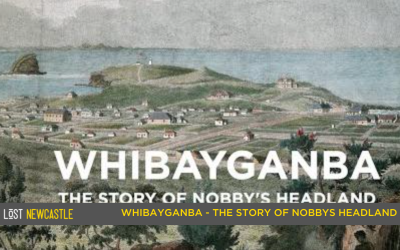

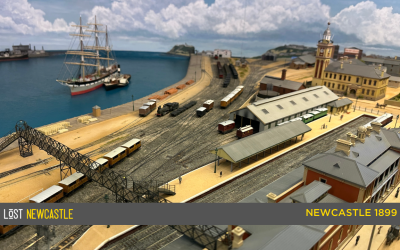
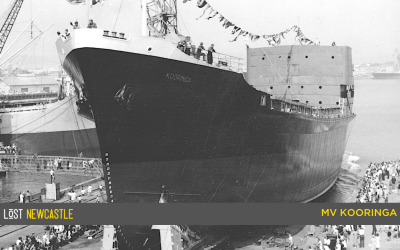
Hi my name is Carole Nix (nee Baird) my father was John (jock) Baird, the chief draftsman at the dockyard he designed the Princess of Tasmania and many other ships between 1946 and 1962, he passed away in 1963.